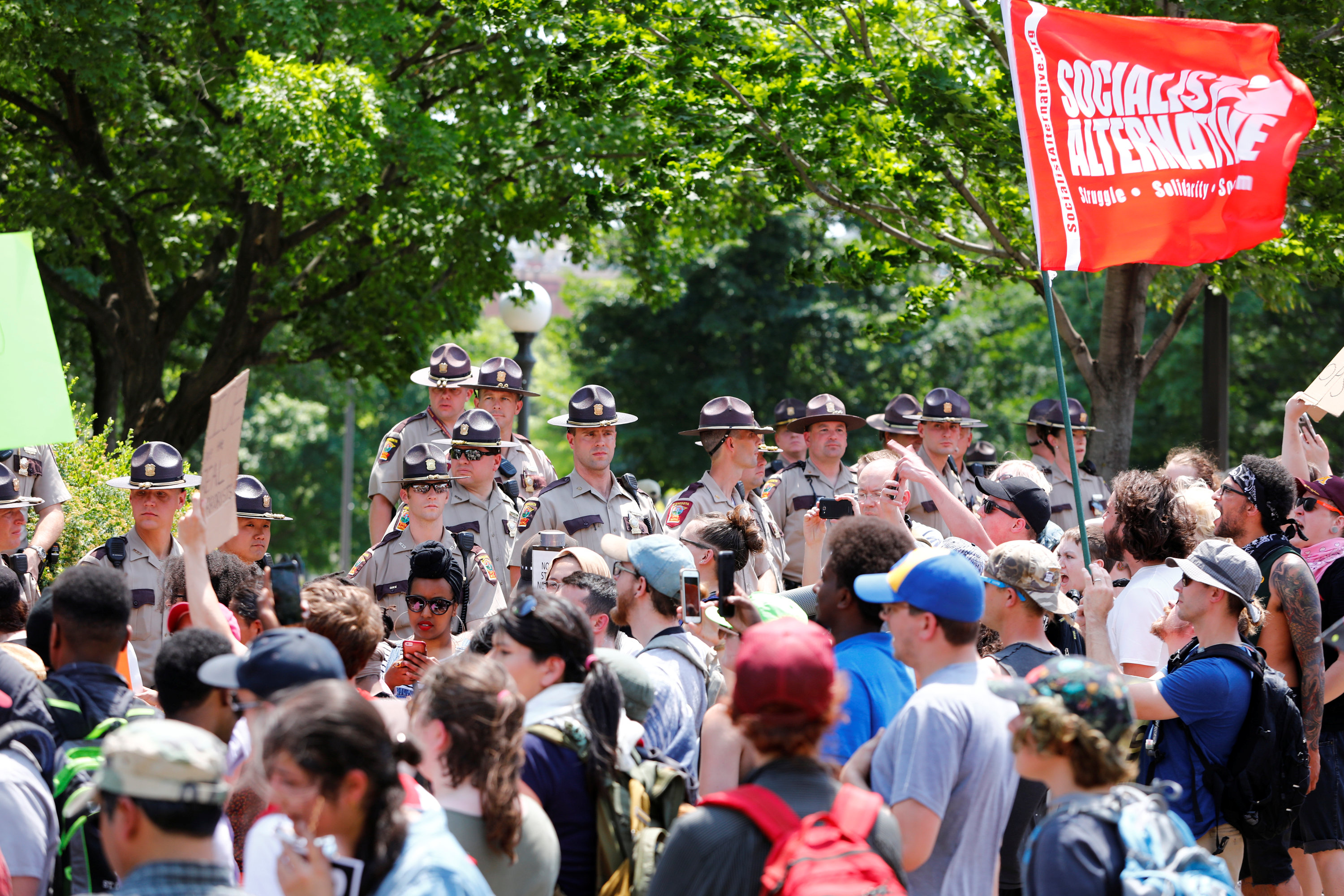
By Andreina Aponte and Corina Pons
CARACAS (Reuters) – Venezuela’s chief prosecutor said on Monday her family had been threatened and followed by intelligence agents since she split with the government, and violence broke out in protests at the Supreme Court over a bid to change the constitution.
Luisa Ortega, a former ally of President Nicolas Maduro who has turned against him and the ruling Socialist Party, has questioned Maduro’s handling of opposition street protests in recent weeks and challenged his plan to rewrite a constitution brought in by late leader Hugo Chavez.
“Somebody is threatening my family,” she said in a radio interview. “They harass them. They follow them, patrol cars that look like SEBIN,” she said, referring to the Bolivarian Intelligence Service (SEBIN).
State officials have launched a series of verbal attacks on Ortega, ranging from questioning her sanity to accusing her of promoting violence.
She said she would hold the government responsible if her family was harmed.
Fanned by anger at triple-digit inflation along with shortages of food and medicine, protests have grown smaller but more violent over the past two months, with at least 67 killed and thousands injured.
Ortega’s office said it was investigating the death on Monday of a man called Socrates Salgado, 49, in a coastal town near Caracas. Opposition politicians said he died during a protest.
“INEPT”
In April, Ortega successfully challenged a Supreme Court decision to assume the powers of the opposition-controlled legislature, making her the highest official in years to openly break with the ruling party.
She filed a Supreme Court challenge last week to Maduro’s plan to elect a legislative super-body known as a constituent assembly, that will have the power to rewrite the constitution and in some cases dissolve state institutions.
The Supreme Court rejected the challenge on Monday.
“The electoral chamber of the Supreme Court of Justice declares that the (challenge) filed by Luisa Ortega Diaz is inadmissible because it is an inept accumulation of pretensions,” the court said on Twitter.
In response, Ortega launched another legal challenge, this time claiming that 13 judges appointed to the court in 2015 were put there via an “irregular” process and that they should be replaced.
Protesters angry at the pro-government court’s ruling on Monday attacked a branch of the court with petrol bombs and damaged a bank in the same building, which was engulfed in smoke and flames. Several protesters were injured as security guards tried to repel them.
Police arrested 24 people for their involvement in the daylight attack on a busy office block, which was condemned by Maduro as a terrorist act. Opposition leader Henrique Capriles said it was the work of government agitators.
Outside the Supreme Court headquarters in downtown Caracas, protesters backing Ortega were confronted earlier by government supporters.
Maduro says Venezuela is the victim of an “economic war” that he says can only be addressed by a constituent assembly.
The elections council has set an election for the assembly for July 30. The opposition is refusing to participate in the vote, saying it is rigged in favor of the Socialist Party.
In a move seen as crimping opposition power, the Interior Ministry on Monday took direct control of the state police force in Miranda, a region that includes a wealthy part of Caracas. Capriles, a former presidential candidate, is its governor.
Citing the current constitution, Interior Minister Nestor Reverol said the six-month “intervention” was justified because there was evidence the police force was involved in rights abuses and organized crime.
Capriles said the plan was to use the police force to repress protests and said members of the force should not obey any order that violated human rights or the constitution.
(Writing by Frank Jack Daniel and Brian Ellsworth; Editing by Marguerita Choy, Cynthia Osterman and Paul Tait)









